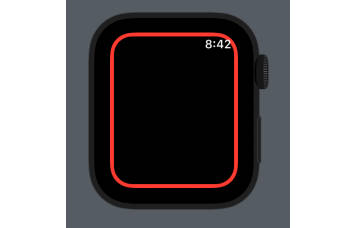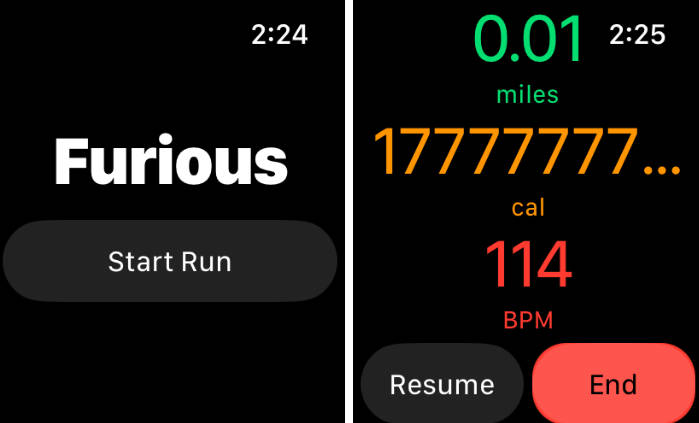PrayKit
PrayKit is a Swift package that powers the Pray Watch app and used for rapid development of Apple platform prayer apps and services. It is a collection of micro utilities and extensions around the Adhan prayer library.
Note: This library is highly volatile and changes often to stay ahead of cutting-edge technologies. It is recommended to copy over code that you want into your own libraries or fork it.
Installation
Swift Package Manager
.package(url: "[email protected]:ZamzamInc/PrayKit.git", .upToNextMajor(from: "1.0.0"))
Usage
The PrayKit package is divided into four different targets:
- PrayCore: Utilities, extensions, service protocols
- PrayServices: Concrete services that conform to the core protocols
- PrayMocks: Resources for creating test instances
- PrayKit: Dependency injection container
Dependency Injection
In PrayKit, there is the PrayKitDependency protocol that represents the dependency container that wraps all services:
public protocol PrayKitDependency {
// Settings
func constants() -> Constants
func preferences() -> Preferences
func localStorage() -> UserDefaults
// Network
func networkManager() -> NetworkManager
func networkService() -> NetworkService
func networkAdapter() -> URLRequestAdapter?
// Services
func prayerManager() -> PrayerManager
func prayerService() -> PrayerService
func prayerServiceLondon() -> PrayerService
func qiblaService() -> QiblaService
func hijriService() -> HijriService
func notificationService() -> NotificationService
func locationManager() -> LocationManager
func locationService() -> LocationService
// Diagnostics
func log() -> LogManager
func logServices() -> [LogService]
}
The SwiftUI EnvironmentValues type can be extended to conform to the PrayKitDependency protocol and supply the concrete instances:
extension EnvironmentValues: PrayKitDependency {
// Thread-safe single instance
private static let preferences = Preferences(
defaults: UserDefaults(suiteName: "{{your suite name}}") ?? .standard
)
public func preferences() -> Preferences {
Self.preferences
}
}
extension EnvironmentValues {
private static let localStorage: UserDefaults = .standard
public func localStorage() -> UserDefaults {
Self.localStorage
}
}
// MARK: Network
extension EnvironmentValues {
private static let networkManager = NetworkManager(
service: networkService,
adapter: networkAdapter
)
public func networkManager() -> NetworkManager {
Self.networkManager
}
}
extension EnvironmentValues {
private static let networkService = NetworkServiceFoundation()
public func networkService() -> NetworkService {
Self.networkService
}
public func networkAdapter() -> URLRequestAdapter? { nil }
}
// MARK: Services
extension EnvironmentValues {
private static let notificationService = NotificationServiceUN(
prayerManager: prayerManager,
userNotification: .current(),
preferences: preferences,
constants: constants,
localized: NotificationServiceLocalize(),
log: log
)
public func notificationService() -> NotificationService {
Self.notificationService
}
}
extension EnvironmentValues {
private static let prayerManager = PrayerManager(
service: prayerService,
londonService: prayerServiceLondon,
preferences: preferences,
log: log
)
public func prayerManager() -> PrayerManager {
Self.prayerManager
}
}
extension EnvironmentValues {
private static let prayerService = PrayerServiceAdhan(log: log)
public func prayerService() -> PrayerService {
Self.prayerService
}
}
extension EnvironmentValues {
private static let prayerServiceLondon = PrayerServiceLondon(
networkManager: networkManager,
apiKey: "{{your api key}}",
log: log
)
public func prayerServiceLondon() -> PrayerService {
Self.prayerServiceLondon
}
}
extension EnvironmentValues {
private static let qiblaService = QiblaServiceAdhan()
public func qiblaService() -> QiblaService {
Self.qiblaService
}
}
extension EnvironmentValues {
private static let hijriService = HijriServiceStatic(
prayerManager: prayerManager,
preferences: preferences
)
public func hijriService() -> HijriService {
Self.hijriService
}
}
extension EnvironmentValues {
private static let locationManager = LocationManager(service: locationService)
public func locationManager() -> LocationManager {
Self.locationManager
}
}
extension EnvironmentValues {
private static let locationService = LocationServiceCore(
desiredAccuracy: kCLLocationAccuracyThreeKilometers,
distanceFilter: 1000
)
public func locationService() -> LocationService {
Self.locationService
}
}
// MARK: Diagnostics
extension EnvironmentValues {
private static let log = LogManager(services: logServices)
public func log() -> LogManager {
Self.log
}
}
extension EnvironmentValues {
private static let logServices: [LogService] = [
LogServiceConsole(
minLevel: constants.isDebug || constants.isRunningOnSimulator ? .verbose : .none,
subsystem: "{{your app}}"
)
]
public func logServices() -> [LogService] {
Self.logServices
}
}
Lazy thread-safety was provided for free by using the static properties. More importantly though, EnvironmentValues now conforms to the dependency container. We can take this one step further by exposing this to any SwiftUI component by adding a property for the dependency container, which will return itself since it conforms to the container:
extension EnvironmentValues {
/// Dependency container for creating instances.
var dependency: PrayKitDependency? { self }
}
Now in SwiftUI, you can add the following property wrapper to access the dependency injection container:
struct ContentView: View {
@Environment(\.dependency) dependency
var body: some View {
Text("Salam, world!")
.task {
guard let preferences = dependency?.preferences() else { return }
let request = PrayerAPI.Request(from: preferences)
let prayerDay = await dependency?.prayerManager().fetch(for: .now, with: request)
}
}
}
Author
- Basem Emara, https://zamzam.io
License
PrayKit is available under the MIT license. See the LICENSE file for more info.







